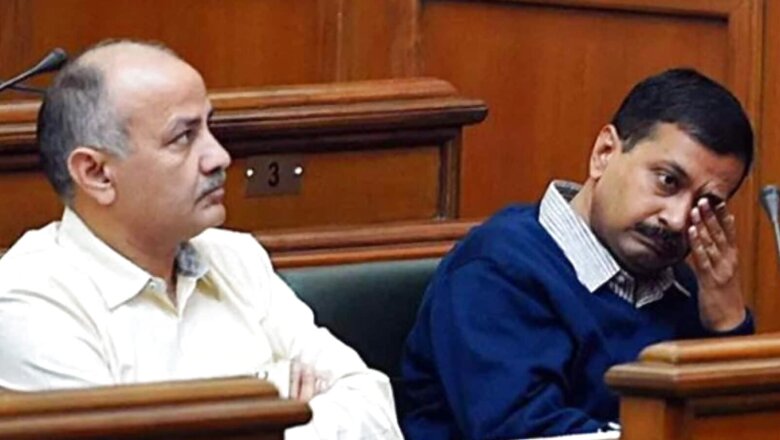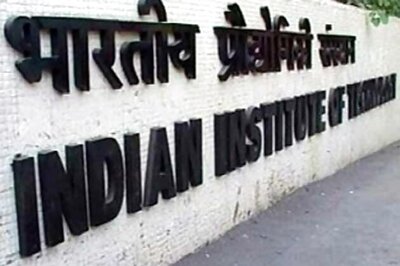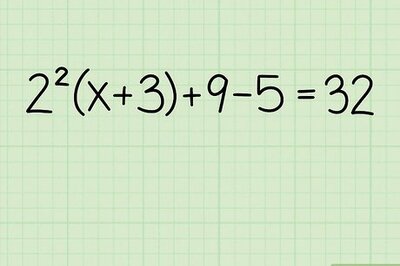
views
Manish Sisodia is no stranger to controversies. Delhi’s deputy chief minister and a trusted lieutenant of Aam Aadmi Party (AAP) supremo and CM Arvind Kejriwal, Sisodia found himself at the centre of yet another controversy as the CBI raided his residence on Friday in connection with alleged corruption in the Delhi government’s now-withdrawn Delhi Excise Policy 2021-22.
The genesis of the raid can be traced back to July 8, when Delhi Chief Secretary Naresh Kumar submitted a report to Lt Governor Vinai Kumar Saxena, accusing Sisodia of providing undue benefits to liquor vend licensees in lieu of “kickbacks” and “commissions” that AAP allegedly utilised in February’s Punjab assembly elections.
Soon after L-G Saxena recommended a CBI probe, Sisodia announced on July 30 that the policy would be scrapped from August 1, allowing only government-owned liquor vends to sell alcohol in the national capital.
As the row turns into a political flashpoint, News18 decodes the controversy and its ramifications for AAP:
WHAT IS THE EXCISE POLICY, 2021-22?
The new Excise policy 2021-22 was implemented from November 17 last year under which retail licences were given to private bidders for 849 vends across the city divided into 32 zones.
In its policy document, the Delhi government had claimed that revenue in the Capital was sub-optimal and there was significant potential for revenue augmentation and also providing a decent standard of customer experience commensurate to the stature of the National Capital.
The policy stated that no new liquor shops will be opened in Delhi; the government will not run any vend; retail licences would be issued to private bidders for 849 vends across the city which would be divided into 32 zones. Each zone was divided into 8-10 wards which have around 27 vends. The policy allowed stores to be opened in markets, malls, commercial roads/areas, local shopping complexes and other such places as long as the standard rules and regulations of opening a new shop are followed, particularly Rule 51 of the Delhi Excise Rules. It listed maintaining law and order as being essential to get a renewal of the licence.
The government also made rules flexible for licencees such as allowing them to offer discounts and set their own prices instead of selling on MRP fixed by the government. Following this, discounts were offered by vendors, which attracted crowds. After protests by opposition, the excise department withdrew discounts for some time.
The policy itself was rolled back on August 1.
WHAT ARE THE ALLEGATIONS?
According to the chief secretary’s report, Sisodia faces allegations of financial quid pro quo in executing major decisions around the excise policy with reportedly huge financial implications. According to reports, he is accused of extending undue financial favours to liquor licencees after the tenders had been awarded.
The Excise Department reportedly gave a waiver of Rs 144.36 crore to the licencees on the tendered licence fee citing the pandemic as an excuse. A PTI report said it also allegedly refunded earnest money of Rs 30 crore to the lowest bidder of the licence of Airport Zone, despite failing to obtain NOC from the airport authorities. Such a move violated Rule 48(11)(b) of the Delhi Excise Rules, 2010, which stipulate that the successful bidder must complete all formalities for grant of licence, failing which all deposits made by him shall stand forfeited to the government.
Reports further say that under Sisodia, the excise department, in its November 8, 2021 order, revised the formula of calculation of rates of foreign liquor and removed the levy of import pass fee of Rs 50 per case on beer “without approval of the competent authority”, making it cheaper for retailers and causing loss of revenue to the state exchequer.
The AAP government is also accused of attempting to legalise “these illegal decisions” by getting the stamp of a post facto Cabinet decision as recently as on July 14, “which in itself was in violation of laid down rules and procedures”.
WHAT HAS THE CBI SAID?
The agency has named 15 individuals in its FIR filed in connection with the now-scrapped policy, with Sisodia topping the list. The FIR, quoting allegations in a memorandum issued by the office of the L-G, says Sisodia, then Delhi Excise Commissioner Arava Gopi Krishna, and two other senior excise department officials were “instrumental in recommending and taking decisions pertaining to excise policy for the year 2021-22 without approval of competent authority with an intention to extend undue favours to the licencees post tender”, The Indian Express reported.
According to the FIR, “some of the L-1 licence holders are issuing credit notes to retail vendors with an ab initio intention to divert the funds as undue pecuniary advantage to public servants,…showing false entries in their books of accounts to keep their record straight”.
WHY DID DELHI POLICE EOW STEP IN?
The Delhi chief secretary, on July 8, sent a report to Sisodia, seeking a reply to his questions about “procedural lapses” and irregularities. A copy of the report was also sent to Delhi Chief Minister Arvind Kejriwal and L-G Saxena on the same day. Kumar also informed the Economic Offences Wing (EOW) and asked it to probe the alleged cartelisation and monopolies in liquor trade.
The EOW issued notice to the assistant commissioner of the excise department, seeking details about the alleged illegal distribution of liquor licences to companies that had violated terms and conditions of the new excise policy. It also sought documents and details including the date on which the Delhi Excise Policy 2021-22 had been formulated, and when tenders for the grant of liquor licences under the new policy were floated, the Express reported.
WHAT HAS AAP SAID?
On Saturday, speaking at an event, Sisodia made light of the raids and said: “…Yesterday I was among some unwanted and uninvited guests…This (participating in an event) is what I’m made to do, not what I was being made to do yesterday.”
A day earlier, the deputy chief minister said CBI officials seized his computer, and mobile phone and also took away some files after a nearly 14-hour-long raid. “The CBI team came this morning. They searched my house and seized my computer and phone. My family cooperated with them and will continue to cooperate. We have not done any corruption or wrong. We are not afraid. We know that CBI is being misused,” he said.
The Aam Aadmi Party has rallied behind its leader, with Kejriwal calling the raids a testament of BJP’s fear over the AAP gaining a foothold across the country and being recognised for its welfare policies.
AAP leader Raghav Chadha too took potshots at the Centre, saying the only thing raids at Sisodia’s residence would reveal would be “notebooks, pencils and geometry boxes”.
WHAT DOES THE BJP ALLEGE?
The Delhi BJP on Friday accused the AAP government of indulging in a “liquor scam” worth crores of rupees and demanded that Kejriwal remove Sisodia as well as another minister Satyendar Jain, who is in judicial custody in a case of money laundering, from their posts.
West Delhi BJP MP Parvesh Verma accused Sisodia of corruption, and that “two middlemen who used to collect cash from liquor licensees have left the country”. “The Arvind Kejriwal government in which Manish Sisodia is (also) the excise minister raised the commission of wholesale licensees from 2 per cent to 12 per cent. Of this, 12 per cent to six per cent in cash was collected for the AAP government by several persons, two of which left the country as soon as a CBI probe was recommended by the L-G,” he alleged in a press conference.
Verma said with the CBI coming into the picture, the Delhi government withdrew the Excise Policy 2021-22 and reduced the 12 per cent commission to 2 per cent.
Former Delhi BJP president and North East Delhi MP Manoj Tiwari said the CBI should also probe whether the Excise Policy was a medium for the ruling party to convert its black money into white. “The AAP contested elections in Punjab, Uttarakhand and other states with the money that it received as commission worth crores of rupees through the scam in the new excise policy,” Tiwari charged.
Delhi BJP president Adesh Gupta, in a tweet, alleged that even during the Covid-19 pandemic, Sisodia was providing “relief” to the liquor mafia. Former Union minister Harsh Vardhan said the “massive corruption by the Kejriwal government” will “open” the eyes of the people of the country. “If the corrupt are doing their work, then the system is also doing its job and the truth will soon come out,” he said, adding one by one, their misdeeds are coming out in the open.
Read the Latest News and Breaking News here




















Comments
0 comment